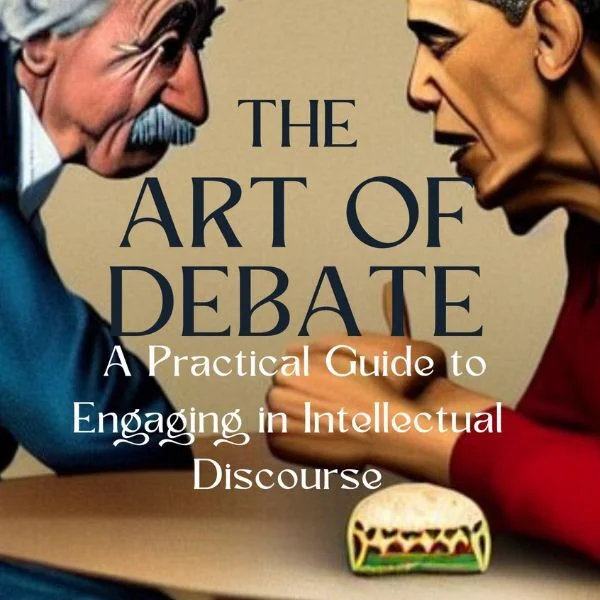Intellectual discourse is a vital component of democratic societies and academic environments, fostering the exchange of ideas, critical thinking, and the advancement of knowledge. It involves reasoned debate and discussion, where individuals engage with differing viewpoints respectfully and constructively. In an era where polarized opinions often dominate public discourse, understanding the principles and practices of intellectual discourse is more important than ever.
The Foundations of Intellectual Discourse
Respect for Diverse Opinions
At the heart of intellectual discourse is a respect for diverse opinions. This respect is not merely a form of politeness but a recognition that complex issues rarely have simple solutions and that multiple perspectives can provide a more comprehensive understanding of a topic. By valuing and listening to different viewpoints, participants in intellectual discourse can challenge their own assumptions and broaden their horizons.
Critical Thinking
Critical thinking is essential for engaging in intellectual discourse. It involves analyzing arguments logically, identifying biases, and assessing the validity of evidence. Critical thinkers question assumptions and seek clarity and coherence in their understanding. This skill allows individuals to engage with ideas on a deeper level, moving beyond superficial opinions to well-reasoned conclusions.
Evidence-Based Arguments
Intellectual discourse relies on evidence-based arguments rather than emotional appeals or personal attacks. Participants are expected to support their claims with credible evidence, whether it be empirical data, scholarly research, or logical reasoning. This emphasis on evidence ensures that discussions are grounded in reality and that conclusions are based on reliable information.
The Role of Intellectual Discourse in Society
Advancing Knowledge
One of the primary benefits of intellectual discourse is the advancement of knowledge. Through the exchange of ideas and the challenging of established beliefs, new insights and discoveries emerge. This process is evident in scientific research, where peer review and debate drive the progress of understanding. Similarly, in social and political contexts, intellectual discourse can lead to more informed policies and solutions.
Promoting Democracy
Intellectual discourse is crucial for the functioning of democratic societies. It provides a platform for citizens to engage in discussions about public issues, to voice their opinions, and to hold leaders accountable. By encouraging open debate and the free flow of ideas, intellectual discourse helps to prevent authoritarianism and promotes a culture of transparency and accountability.
Fostering Tolerance
Engaging in intellectual discourse can also foster tolerance and mutual understanding. When individuals are exposed to diverse perspectives and learn to appreciate the reasoning behind different viewpoints, they are less likely to resort to prejudice or hostility. This tolerance is essential for social cohesion and the peaceful coexistence of different cultural, religious, and ideological groups.
Challenges to Intellectual Discourse
Polarization
One of the significant challenges to intellectual discourse today is polarization. In many societies, people are increasingly divided along political, ideological, and cultural lines. This division can lead to echo chambers, where individuals only engage with like-minded people and dismiss opposing views. Polarization undermines intellectual discourse by creating an environment where reasonedd ebate is replaced by hostility and entrenched positions.
Misinformation
The spread of misinformation is another major challenge. In an age of information overload, distinguishing between credible sources and false information can be difficult. Misinformation can distort public discourse, leading to misguided beliefs and decisions. Combatting this issue requires a commitment to media literacy and critical thinking, ensuring that individuals can evaluate the reliability of the information they encounter.
Cancel Culture
Cancel culture, where individuals or groups are ostracized for expressing controversial or unpopular opinions, can stifle intellectual discourse. While accountability for harmful behavior is important, the fear of being “canceled” can discourage people from engaging in open and honest debate. A healthy intellectual environment should allow for the discussion of challenging ideas while maintaining respect and dignity for all participants.
Promoting Healthy Intellectual Discourse
Encouraging Open Dialogue
To promote healthy intellectual discourse, it is essential to encourage open dialogue. This means creating spaces where people feel safe to express their ideas without fear of ridicule or retribution. Educational institutions, public forums, and online platforms all have a role to play in fostering an environment conducive to respectful and constructive debate.
Teaching Critical Thinking Skills
Education systems should prioritize the teaching of critical thinking skills. By equipping individuals with the ability to analyze arguments, assess evidence, and think logically, we can create a society better prepared to engage in intellectual discourse. Critical thinking should be integrated into curricula from an early age and reinforced throughout higher education.
Valuing Diversity of Thought
Valuing diversity of thought is crucial for intellectual discourse. This involves actively seeking out and considering different perspectives, especially those that challenge our own beliefs. Encouraging diversity of thought in academic, professional, and social settings can lead to richer and more productive discussions.
Conclusion
Intellectual discourse is a cornerstone of a vibrant and functioning society. It promotes the advancement of knowledge, supports democratic principles, and fosters tolerance and mutual understanding. However, it faces significant challenges from polarization, misinformation, and cancel culture. By encouraging open dialogue, teaching critical thinking, and valuing diversity of thought, we can create an environment where intellectual discourse thrives, leading to more informed and inclusive societies. Embracing the principles of intellectual discourse is not only beneficial but necessary for addressing the complex issues of our time.
4o








